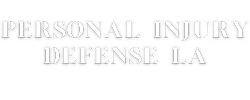When you create original content, whether it’s a book, music, artwork, or software, you hold the exclusive rights to that work. Unfortunately, unauthorized use or infringement of your copyrighted material can occur. Here’s a guide on how to address unauthorized use of your copyrighted material.
Identify The Infringement
The first step is to confirm that infringement has occurred. Verify that your copyrighted work is being used without permission. This might involve checking websites, online platforms, or physical copies where your work might appear. Look for evidence such as unauthorized reproductions, adaptations, or distributions of your material. Documentation of these instances is crucial as it forms the basis for any legal actions you might take.
Gather Evidence
Once you confirm that unauthorized use has taken place, gather as much evidence as possible. This includes screenshots, copies of the infringing material, and records of where and how your work is being used. Documenting how the infringement impacts your work, such as loss of revenue or damage to your reputation, can also be useful. This evidence will support your case whether you decide to handle the matter informally or through legal channels.
Contact The Infringer
In many cases, a formal request for the removal of the infringing material can resolve the issue. Reach out to the individual or organization responsible for the unauthorized use. This contact can be made through a cease-and-desist letter, which outlines the infringement and demands that they stop using your material immediately. The letter should be clear, professional, and include evidence of the infringement along with a deadline for compliance.
Consider Legal Action
If informal methods do not lead to a resolution, you might need to consider legal action. Consulting with a copyright infringement lawyer can provide guidance on the next steps. Legal action might involve filing a lawsuit to seek damages or an injunction to prevent further unauthorized use. An attorney can help you understand the potential outcomes, costs, and benefits of pursuing litigation.
Register Your Copyright
For future protection, ensure that your copyright is officially registered. While copyright protection is automatic upon creation of the work, registration provides additional legal benefits, such as the ability to sue for statutory damages and attorney fees in the event of infringement. If your work is not yet registered, consider completing this process to bolster your legal position.
Monitor And Protect Your Work
Ongoing vigilance is essential to prevent and address unauthorized use of your work. Regularly monitor platforms where your work is distributed to detect potential infringements early. Utilize tools and services designed to track and enforce copyright protection. Proactive measures can help you maintain control over your intellectual property and address issues before they escalate.
Seek Professional Advice
Dealing with copyright infringement can be complex, and seeking professional advice is often beneficial. Attorneys our friends at Trademark Lawyer Law Firm can provide invaluable assistance in managing and resolving these issues. Their expertise can help you navigate the legal landscape and take appropriate actions to protect your rights effectively.
By following these steps, you can better manage and address unauthorized use of your copyrighted material, ensuring that your intellectual property rights are upheld.
